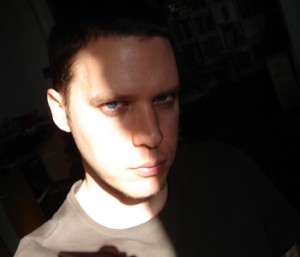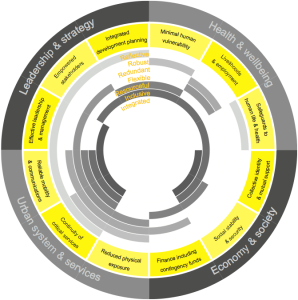
Appropedia is for collaborative solutions
in sustainability, appropriate technology and poverty reduction.
Contributors have made 274,988 edits and uploaded 21,269 files. Browse our categories or all 6,212 articles.

Zoomanitarians has been in the works for well over a year, so we’re excited to be going fully public for the first time. Zoomanitarians is a joint initiative between Zooniverse (Brook Simmons), Planet Labs (Alex Bakir) and myself at QCRI. The purpose of Zoomanitarians is to accelerate disaster damage assessments by leveraging Planet Labs’ unique constellation of 28 satellites and Zooniverse’s highly scalable microtasking platform. As I noted in this earlier post, digital volunteers from Zooniverse tagged well over 2 million satellite images (of Mars, below) in just 48 hours. So why not invite Zooniverse volunteers to tag millions of images taken by Planet Labs after major disasters to help humanitarians accelerate their damage assessments?

The Social Labs Revolution: A New Approach to Solving our Most Complex Challenges
The following is an excerpt from the introduction of the book, “What Are Social Laboratories?”
Zaid Hassan
Stanford Social Innovation Review, 19 May 2014
The Social Labs Revolution reports and builds on a decade of practical experiments in addressing social challenges that are complex in nature. These range from the sustainability of global food systems and child malnutrition to state collapse and climate change. Zaid Hassan, a co-founder of Reos Partners, makes the case that taking a planning-based approach risks almost certain failure. Instead he expounds on an experimental, prototyping based approach, social labs, that have proven more effective in addressing complex challenges.
The following is an excerpt from the book.

Transitioning to a Commons-Based Society
Background on the FLOK Project
Michel Bauwens:
The National Plan of Ecuador recognizes and stresses that the global transformation towards knowledge-based societies and economies requires a new form for the creation and distribution of value in society. The National Plan's central concept is the achievement of ‘Buen Vivir' (Sumak Kawsay) or ‘good living'; but good living is impossible without the availability of ‘good knowledge', i.e. ‘Buen Conocer' (‘Sumak Yachay'). The third national plan for 2013-2017 explicitly calls for a open-commons based knowledge society[1].
President Correa himself exhorted young people to achieve and fight for this open knowledge society[2].
The FLOK Society is a joint research effort by the Coordinating Ministry of Knowledge and Human Talent, the SENESCYT (Secretaría Nacional de Educación Superior, Ciencia, Tecnología e Innovación) and the IAEN (Instituto de Altos Estudios del Estado) to develop transition and policy proposals to achieve such an open commons-based knowledge society.
FLOK refers to:
Continue reading “Michel Bauwens: Transitioning to a Commons-Based Society”

Latest Findings on Disaster Resilience: From Burma to California via the Rockefeller Foundation
I’ve long been interested in disaster resilience particularly when considered through the lens of self-organization. To be sure, the capacity to self-organize is an important feature of resilient societies. So what facilitates self-organization? There are several factors, of course, but the two I’m most interested in are social capital and communication technologies. My interest in disaster resilience also explains why one of our Social Innovation Tracks at QCRI is specifically focused on resilience. So I’m always on the lookout for new research on resilience. The purpose of this blog post is to summarize the latest insights.

This new report (PDF) on Burma assesses the influence of social capital on disaster resilience. More specifically, the report focuses on the influence of bonding, bridging and linking social capital on disaster resilience in remote rural communities in the Ayerwaddy Region of Myanmar. Bonding capital refers to ties that are shared between individuals with common characteristics characteristics such as religion or ethnicity. Bridging capital relates to ties that connect individuals with those outside their immediate communities. These ties could be the result of shared geographical space, for example. Linking capital refers to vertical links between a community and individuals or groups outside said community. The relationship between a village and the government or a donor and recipients, for example.
As the report notes, “a balance of bonding, bridging and linking capitals is important of social and economic stability as well as resilience. It will also play a large role in a community’s ability to reduce their risk of disaster and cope with external shocks as they play a role in resource management, sustainable livelihoods and coping strategies.” In fact, “social capital can be a substitute for a lack of government intervention in disaster planning, early warning and recovery.” The study also notes that “rural communities tend to have stronger social capital due to their geographical distance from government and decision-making structures necessitating them being more self-sufficient.”

We Need a Magna Carta for the Internet
Huffington Post, 6 May 2014
These comments are adapted from a talk to the Net Mundial conference in Brazil on May 4.
“Twenty-five years ago, when the Internet had been running for 20 years, there was internet mail and net news and remote login, but there was no web. No web sites, web pages, links. So I invented the World Wide Web. As the project grew, I needed collaborators. To achieve that, I went to the Internet technical community.
Specifically, I founded the World Wide Web Consortium (W3C), a multistakeholder organization that develops open standards to ensure the long-term growth of the Web. W3C works on different aspects of Internet technology with numerous organizations, including the Internet Engineering Task Force, ECMA/TC39, IANA, and ICANN.
Hopefully you all agree that we have done a reasonable job. The Web, and its underlying Internet infrastructure, have been an enormous engine of growth and understanding for society. It has been the collaboration between these multi-stakeholder organizations which has made this possible.
Our technical community achieved this contribution with little oversight from governments. In fact, our “OpenStand” vision is that the right way to build a technical infrastructure for society is through multi-stakeholder technical groups where decisions are made in the public interest and based on technical merit. Discussion is open. Documents are available for free on the web. In W3C specifically, companies commit that as the standard emerges, they will not charge royalties to those who implement it.
The web needs to remain a system which exists without regard to national borders. Today most of the work is already done in the non-national Internet technical community. I was also pleased to hear that ICANN is beginning a dialogue to create a multi-stakeholder review process to replace that of the U.S. government. That is appropriate because ICANN services the global public interest.